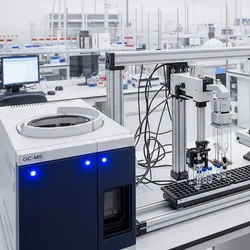
CURRENT ISSUE | VOLUME 6 - ISSUE 3 | April 2011
COVER STORY
Scientists & The Social Media
Are Laboratory professionals ready to take...
Product Focus
How it Works
Lab Product
News
Business Management
Research-Specific Labs
Lab Health and Safety
Ask the Expert

Emily Anna Bridges, laboratory manager in the Department of Biochemistry and Biophysics at the University of Pennsylvania, School of Medicine, shares her harrowing experiences when the aged water purification system supplying water to her research building stopped functioning entirely, after months of causing leaks and contamination problems.












